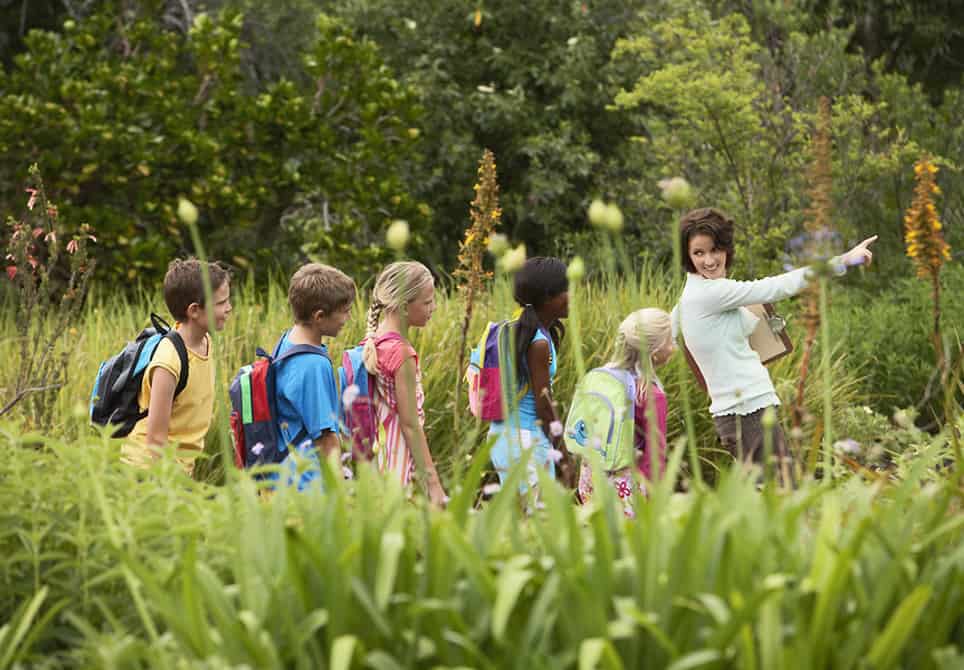The concept of”natural learning communities “natural learning community” is a sign of continuous growth in the world of education and personal development playing a significant role in shaping the future. With a focus on wellbeing and personal growth as well as the natural fascination of children, these communities offer a safe and nurturing environment where young minds can flourish in harmony with the natural world surrounding them. This article focuses on the transformative impact of natural-learning communities and the profound impact it has on children’s development and well-being.
Embracing nature’s classroom: the essence of an educational community that is natural
A natural learning community is distinguished by a profound relationship to the natural world. The environment is seen as an active participant in the learning process rather than just the backdrop. Communities like these immerse children the natural world, creating an environment in which curiosity, exploration and exploration are encouraged.

A learning community for well-being prioritizes not only academic achievements but also the emotional, social, and physical growth of each child. This holistic approach recognizes the importance of a child’s wellbeing as the foundation of learning and personal development.
Learning and curiosity are natural in children
Children are naturally curious and have an insatiable desire to learn and discover the world. Natural learning communities feed this curiosity and enable children to engage with their surroundings meaningfully. Instead of limiting learning to the classroom, these types of communities encourage engaging with the environment, experiential learning and hands-on experiences.
In the nurturing confines a natural-learning community, natural education takes place organically. The children explore subjects of interest to them. They are curious, seek answers, and create connections. This curiosity-driven approach enhances knowledge and instills lifelong learning.
A sanctuary for personal development and well-being
In an environment that supports and recognizes the uniqueness of each child, their growth thrives. Natural learning communities create a place where children can be themselves and feel empowered. When they recognize their strengths, capabilities, and areas of growth, children can gain an increased sense of self and self-confidence.
In these kinds of communities, personal growth doesn’t stop with the academic level. It includes emotional intelligence, social skills, resilience and a strong sense of empathy. Children are taught to overcome obstacles, work with others and to communicate effectively. These skills are essential for professional and personal accomplishment.
Collaboration and learning through involvement in the community
Participation in the community and collaboration are among the most important features that create a positive learning environment. Children are involved in collaborative projects, group projects and community service in order to help build a sense and a sense of accountability. By working together to solve problems that are real and adding value to their community, children gain a deep understanding of their role within the wider community.
Children learn life skills by the synergy that happens between wellbeing, learning and personal development within an environment of natural learning. They discover the value of teamwork, effective communication, and ethical decision-making – traits that help them become responsible and compassionate individuals.
Exploring the transformative power of children for children’s well-being as well as personal development
The potential to transform a natural-learning community is in its ability of molding into well-rounded people, equipped to deal with the complexities of an ever-changing world. They bridge academic excellence and holistic growth and create an environment that encourages children to thrive as a thriving, curious, and empowered learner.
By fostering well-being, a natural learning community helps children’s mental and emotional wellbeing. They learn the importance of self-care to manage stress, balance and harmony.
As children engage in kids their personal development, they cultivate a growth mindset that drives their ability to face difficulties, learn from mistakes, and continuously strive for self-improvement. This attitude is the basis for resilience and adaptability throughout the course of their lives.
The importance of an integrated education and personal growth in this age of rapid technological advancements, and constantly evolving societal requirements cannot be overstated. This is demonstrated by a natural learning community that provides a safe and nurturing environment in which children’s well-being is a top priority and their natural curiosity is encouraged.
Through embracing the transformational power of nature, cooperative learning, and social involvement, these communities transform children into caring confident, empowered, and able individuals. Children who begin an education journey in a natural learning environment not only gain knowledge and experience, but also build an affinity for the world around them. This guarantees a future filled with purpose, empathy and a passion for continuing education.